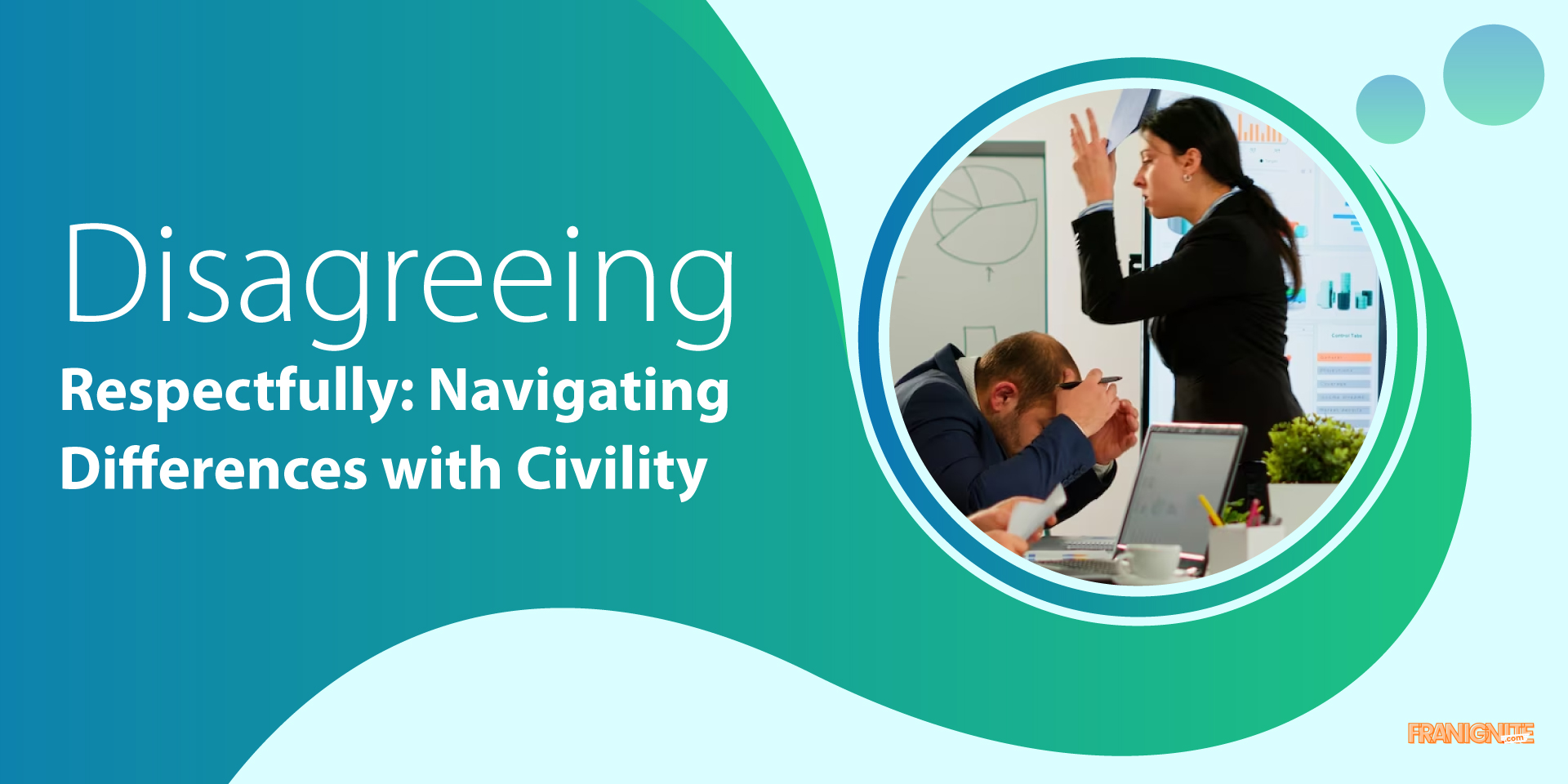Disagreements are a natural part of human interaction. Whether in personal relationships or professional settings, people often hold diverse opinions and perspectives. While disagreements can be challenging, they also provide an opportunity for growth, learning, and the development of stronger connections. The key to navigating disagreements effectively lies in the ability to disagree respectfully. In this guide, we will explore strategies and techniques for engaging in respectful disagreements that promote healthy communication and maintain positive relationships.
The Importance of Disagreeing Respectfully
Before delving into the strategies for respectful disagreement, it’s crucial to understand why respectful disagreement matters. Respectful disagreement contributes to:
- Maintaining Relationships: Disagreements can strain relationships, but when handled with respect, they can also strengthen them. Disagreeing respectfully allows individuals to express their differences without causing unnecessary harm or conflict.
- Effective Communication: Respectful disagreement fosters open and honest communication. It encourages active listening, empathy, and a willingness to understand opposing viewpoints.
- Conflict Resolution: Disagreements often involve conflicts of interest or values. Addressing these conflicts respectfully can lead to productive resolutions that satisfy the needs and concerns of all parties involved.
- Personal Growth: Engaging in respectful disagreements can lead to personal growth and increased self-awareness. It challenges individuals to consider alternative perspectives and refine their own beliefs and opinions.
Strategies for Disagreeing Respectfully
- Active Listening: Effective communication starts with active listening. When someone is expressing their viewpoint, give them your full attention. Avoid interrupting, and resist the urge to formulate your response while they are speaking. Instead, focus on understanding their perspective.
- Use “I” Statements: When it’s your turn to express your disagreement, use “I” statements to convey your feelings and thoughts. For example, say, “I believe” or “I feel” instead of making accusatory statements. This approach helps frame your disagreement as a personal perspective rather than an attack.
- Empathize and Validate: Make an effort to empathize with the other person’s feelings and point of view, even if you disagree. Validating their emotions by acknowledging their right to feel a certain way can go a long way in maintaining respect during the conversation.
- Avoid Personal Attacks: Disagreements should focus on ideas and opinions, not on personal attacks. Refrain from name-calling, insults, or demeaning language. Keep the discussion focused on the topic at hand.
- Stay Calm: Emotional reactions can escalate disagreements. Practice emotional regulation by staying calm and composed. If you feel yourself becoming agitated, take a deep breath and pause before responding.
- Seek Common Ground: In many disagreements, there may be areas of agreement or shared interests. Identify these points of common ground and use them as a starting point for finding solutions or compromise.
- Ask Clarifying Questions: To gain a better understanding of the other person’s perspective, ask clarifying questions. Encourage them to elaborate on their views and provide more context. This not only shows that you are genuinely interested but also helps avoid misunderstandings.
- Agree to Disagree: Sometimes, it’s not possible to reach a consensus. In such cases, it’s okay to agree to disagree. Acknowledge that you have different viewpoints and that further discussion may not lead to resolution.
- Use Humor Tactfully: Humor can be a helpful tool in diffusing tension during disagreements. However, use it tactfully and ensure that your humor does not come across as mocking or belittling.
- Know When to Walk Away: In some situations, it may be best to disengage temporarily. If a disagreement becomes too heated or unproductive, it’s okay to take a break and revisit the discussion later when emotions have cooled.
Common Pitfalls to Avoid
While the strategies mentioned above can help you disagree respectfully, it’s also essential to be aware of common pitfalls that can hinder respectful communication:
- Assuming Bad Intentions: Avoid assuming that the other person has malicious intentions. People often have different perspectives shaped by their experiences and beliefs.
- Interrupting or Talking Over Others: Interrupting someone while they are speaking can be seen as disrespectful and dismissive. Allow them to finish their thoughts before responding.
- Using Absolutes: Words like “always” and “never” can escalate disagreements. Try to avoid making sweeping statements that leave no room for compromise.
- Failing to Apologize: If you realize that you were disrespectful during a disagreement, don’t hesitate to apologize. A sincere apology can help repair any damage done to the relationship.
- Ignoring Nonverbal Cues: Pay attention to the other person’s nonverbal cues, such as body language and tone of voice. These cues can provide valuable insights into their emotions and reactions.
Disagreements are a natural part of human interaction, and handling them with respect is essential for maintaining healthy relationships and effective communication. By actively listening, using “I” statements, empathizing, and avoiding personal attacks, you can engage in respectful disagreements that promote understanding and growth.
Remember that disagreements are opportunities for learning and personal development. Embrace the chance to broaden your perspective and refine your communication skills through respectful disagreement. Ultimately, practicing respectful disagreement contributes to more harmonious relationships and more effective problem-solving.
Liked what you read? Follow us on Linkedin.
Want your franchise news to be covered? Send your Press Release.




